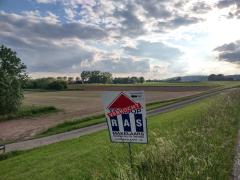The Emerging Governance Landscape around Zero Deforestation Pledges. Insights into dynamics and effects of zero deforestation pledges.
Voluntary commitments to eliminate or reduce deforestation are developing into a powerful framing of global activities to combat deforestation and forest degradation. With the demand for agricultural commodities expected to double in coming decades, pressure on forests is likely to increase, particularly in the Global South. This background study provides an overview of the governance landscape around zero deforestation pledges, to aid a better understanding of its workings and dynamics.
Zero Deforestation Committments have potential
Zero deforestation commitments mirror larger trends in global sustainability governance, that build on common goal setting (e.g. SDGs) and individually formulated public and private commitments (e.g. the Bonn Challenge and Paris Climate Agreement’s nationally determined contributions).
While there is ample discussion on whether zero deforestation commitments can indeed relieve pressure on climate and biodiversity, voluntary commitments to eliminate or reduce deforestation are developing into a powerful framing of global activities to combat deforestation and forest degradation. A variety of zero deforestation commitments emerges with public and private front runners, applying instruments such as certification, moratoria, traceability tools, and with its own decentralised networked monitoring system.
Need for better follow-up on implementation
Zero deforestation commitments are made by high level, powerful actors, on a global scale. Nevertheless, as a relatively new phenomenon that has yet to develop clearer sets of rules and approaches, the emerging governance landscape is dispersed with various actors taking on leadership roles and with several initiatives overlapping in governance functions. In addition, lack of clarity on definitions (zero net deforestation versus zero deforestation) makes it difficult to keep track and further disperses directionality within the wider ZD governance landscape.
An important question is of course what results zero deforestation commitments are yielding. The trend of new commitments has been slowing down, in recent years. The step from commitment to implementation still requires significant additional action. The results also reflect a general trend in corporate sustainability governance; despite some frontrunners, most businesses still need to live up to their sustainability claims, which suggests that the transition to sustainable commodity sourcing is still at an early stage.
Authors
Specifications
- Publication title
- THE EMERGING GOVERNANCE LANDSCAPE AROUND ZERO DEFORESTATION PLEDGES. Insights into dynamics and effects of zero deforestation pledges
- Publication date
- 30 April 2018
- Publication type
- Publicatie
- Publication language
- Engels
- Product number
- 3254




